‘No evidence’ William Tyrrell was dumped: coroner
The coroner running an inquiry into the disappearance of William Tyrrell has made a grim call on the youngster’s fate.
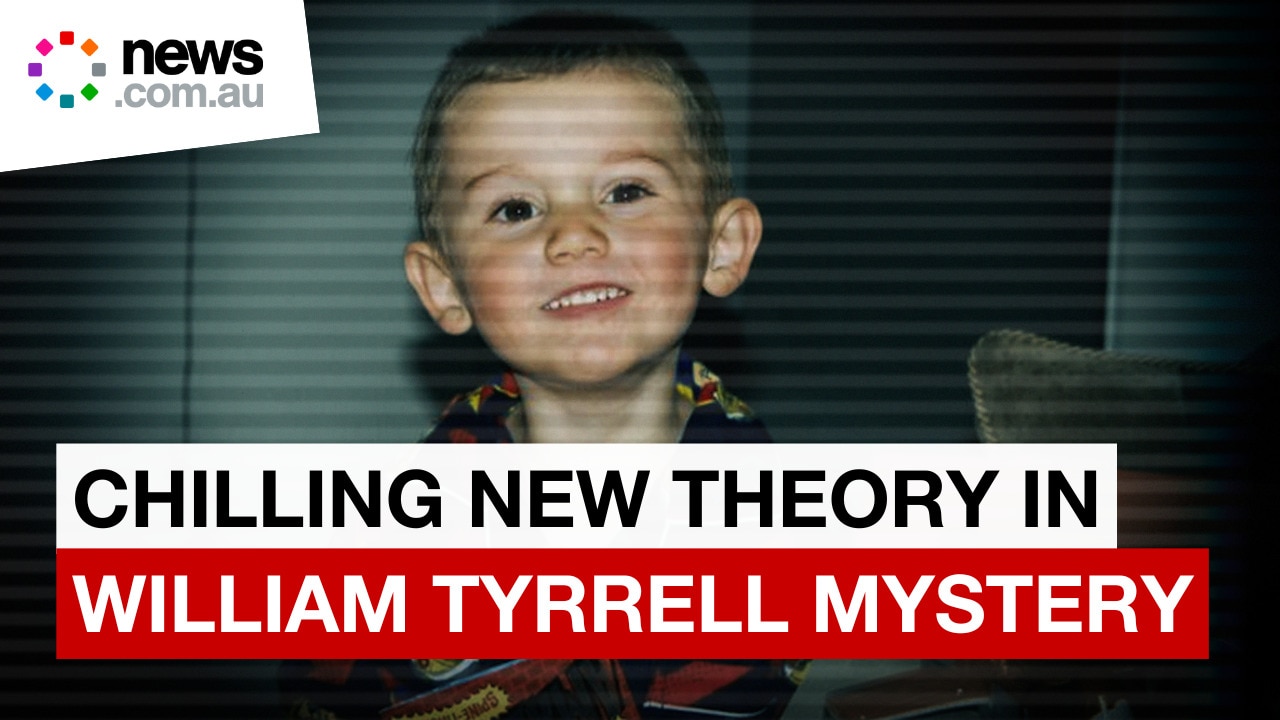
Breaking News
Don't miss out on the headlines from Breaking News. Followed categories will be added to My News.
No one was seen dumping William Tyrrell’s body at an intersection on the outskirts of Kendall or anywhere else, a coroner has told a court.
William’s disappearance, from his foster grandmother’s home on the NSW Mid North Coast in September, 2014, is the subject of an inquest before the NSW Coroner’s Court.
The long-running inquest, before Deputy State Coroner Harriet Grahame, has resumed and is due to conclude following a final block of hearings.
The inquest is examining a police theory that William died in an accidental fall and that his foster mother disposed of his body in nearby bushland.
It’s an allegation that has been persistently and vehemently denied by the foster mother.
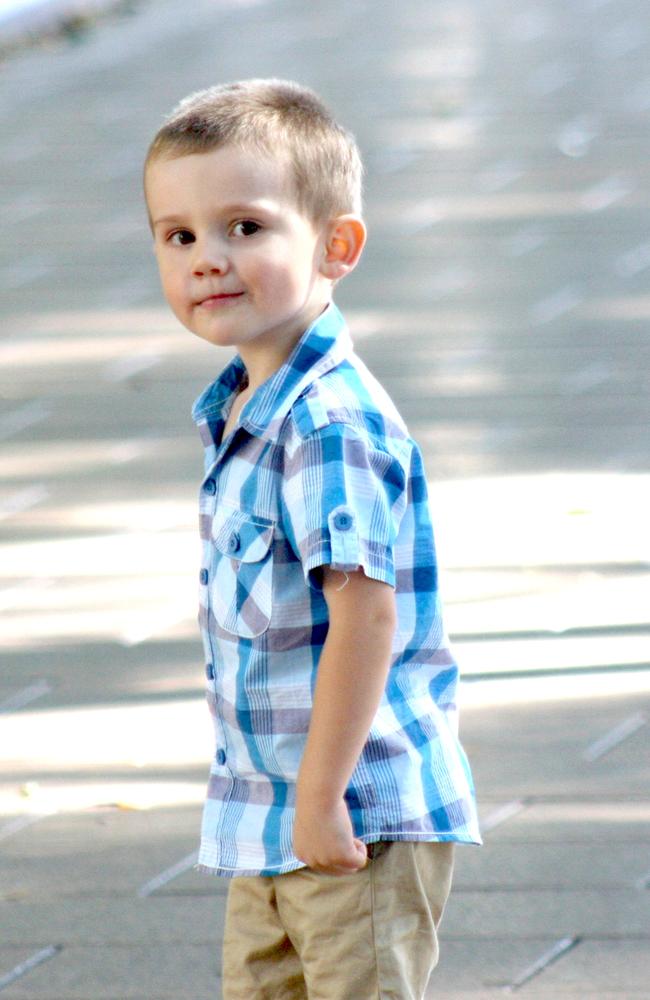
“NO EVIDENCE”
The long-running inquest ran for 18 months before it concluded in October 2020 and Ms Grahame’s findings were due to be handed down in June 2021.
However evidence has been reopened because of a fresh police theory that William died in an accidental fall from a balcony at his foster grandmother’s home.
It has been further alleged that his foster mother - fearing another child could be taken from her care - decided to cover up the incident and dump his body in bushland at the intersection of Cobb and Co Road and Batar Creek Rd.
The foster mother has denied the allegation.
Ms Grahame on Tuesday told the court: “I pause to say there is actually no evidence that anyone has been seen placing a body here or anywhere else.”
The coroner made the comments as she explained her decision not to call evidence from a researcher on invasive species.
The court has heard Professor Jon Olley, who was on site for the fresh forensic dig around Kendall in November 2021, sent an email to a wildlife expert at the Department of Primary Industries asking if any bones could have been taken or disturbed by wild animals.
The expert, Dr Paul Meek, will not be called as a witness, the court heard.
Ms Grahame said she accepted there were dogs in the Kendall area.
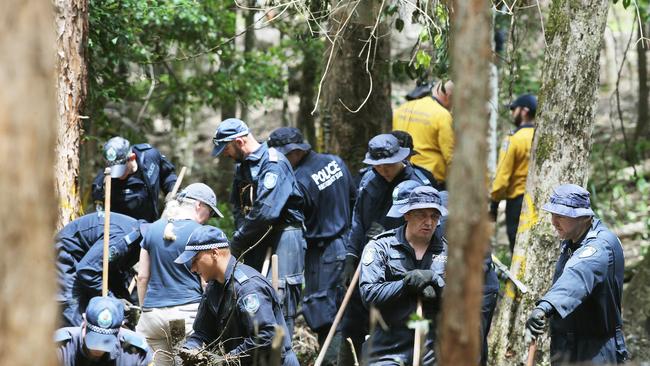
BONES
William was three years and three months old when he disappeared without a trace.
No forensic evidence pointing to his fate has been discovered by police over the last decade, the court has been told.
Seven years after he went missing, anthropologist Dr Jennifer Menzies was asked by Strike Force Rosann to provide advice about the possible degradation of bones and skeletal remains.
The court was told on Tuesday that in response to a series of questions, she told detectives: “I cannot state with certainty whether his remains are likely to be preserved or otherwise.
“I have not visited the site of deposition.”
She said several variables affected whether his bones would have been preserved, including the acidity and the microenvironment of the soil, temperature and whether they were picked at by scavengers.
She told the court that a small adult’s remains could have survived on the ground in cool temperatures, in Australian conditions, for seven years.
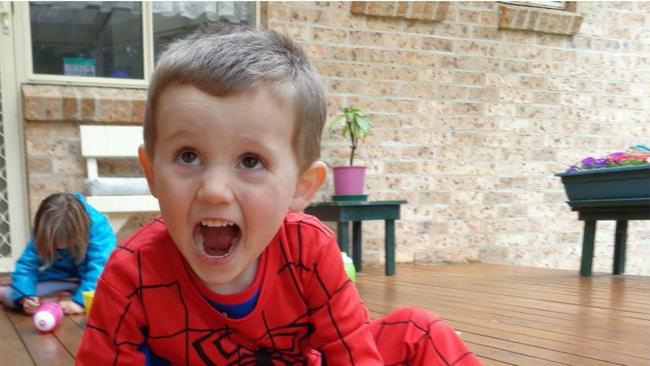
THE CADAVER DOGS
The inquest has focused on a police search in and around Kendall in late 2021 which was centred on the corner of Cobb and Co Road and Batar Creek Rd.
That intersection is approximately 1km, or a two-minute drive, from William’s foster grandmother’s home.
According to a police theory, William died in an accidental fall and his body was disposed of in undergrowth at the intersection by his foster mother.
It’s a theory that has been strenuously denied by the foster mother.
Senior Constable Matthew Gates, from the NSW Police dog unit, told the court that on September 13, 2014 - day after William disappeared - he was involved in a search of Kendall along Batar Creek Rd down to the intersection of Cobb and Co Rd.
He told the court he was also involved in dense bushland in subsequent days and said the area would have been impossible for a three-year-old to navigate.
Senior Constable Adam Aitken is also a part of the NSW Police dog squad and works with cadaver dogs.
He was involved in a search of Kendall, with his dog Digger, on September 15, 2014.
The court was told on Tuesday that the September 15 search did not take in the area around the Cobb and Co Rd and Batar Creek Rd intersection.
He said he was involved in a thorough search of Kendall on a number of occasions in following years.
“The dog’s off lead, we’re allowing the dogs to just work, we’re looking at the same time, the dog’s working 20 to 30 metres in front of me,” Sen Con Aitken said.
The court heard that in Sen Con Aitken’s experience, search dogs can detect cadavers from up to 70m away.
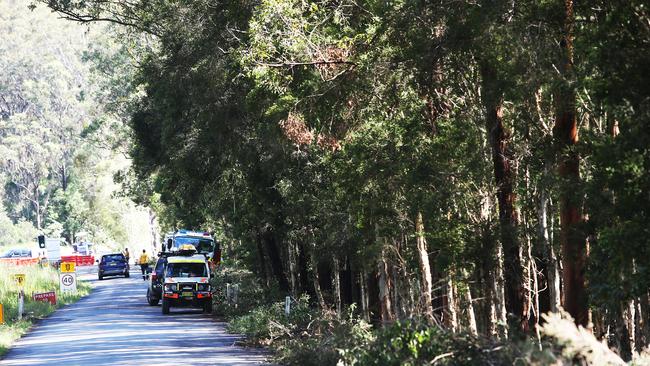
‘JUST DISTURBED’
Before the proceedings began on Tuesday morning, counsel assisting the court Gerard Craddock SC told the court that as the foster mother was leaving court on Monday, “somebody started hurling abuse at her”.
The court was also told that it’s believed that the person also used the female foster carer’s name.
The woman cannot be named or publicly identified due to a non-publication order and any breach could represent contempt of court.
“Obviously, there’s no place for that in suitable society at all,” Mr Craddock said.
“It’s particularly regrettable in the circumstances of this case.”
He asked Ms Grahame to remind those seated in the public gallery that everyone before the court was afforded fairness.
“I’m very, very disappointed, Mr Craddock, to hear that,” Ms Grahame said.
“This sort of behaviour must not occur … I’m just disturbed by this sort of behaviour.”
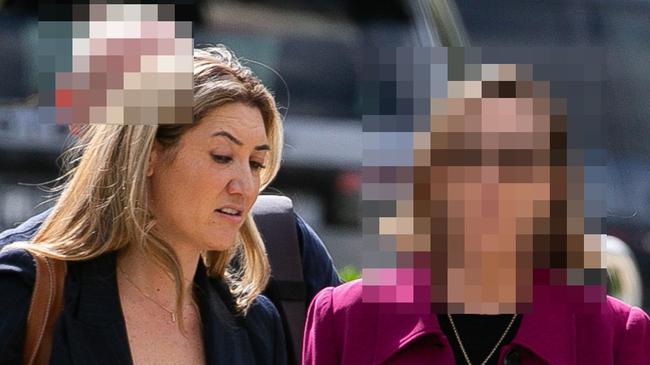
THE SEARCH
The police theory prompted a renewed forensic search around Kendall, including the crossroads of Batar Creek Rd and Cobb and Co Rd, in late 2021.
“It’s beyond any argument now that William Tyrrell has not been found,” counsel assisting Gerard Craddock told the court on Monday
“It’s beyond argument that no forensic evidence has been located at 48 Benaroon Drive or anywhere else that provides a clue to William’s disappearance.”
Police and volunteers sifted through leaf litter and soil by hand during the search, as well as draining creeks and searched for any signs of William with cadaver dogs.
Water science expert Professor Jon Olley was brought in by NSW Police as a consultant during the dig having also been involved in the search for Daniel Morcombe and other high profile missing person cases.
He told the court that the search was “extremely thorough”.
Professor Olley told the court that a polyester suit similar to the Spider-Man outfit William was wearing on the day he disappeared would have taken centuries to degrade.
“The estimate is hundreds of years,” Professor Olley said.
The court has been told that no traces of William have ever been found, however the search did uncover animal bones including kangaroo limbs.
The court has been told that Professor Olley also sent an email to a wildlife expert at the Department of Primary Industries asking if any bones could have been taken by pigs and wild dogs.
He said that the expert replied “absolutely”.
Professor Olley said if William had been dumped in a creek around the search area, his body would have been caught up in one of the dams.

ACCIDENTAL FALL
The court was told police believed that William died in an accidental fall and his foster mother disposed of his body in nearby bushland at the corner of Batar Creek Rd and Cobb and Co Rd.
Mr Craddock SC told the court that according to the police theory, the foster mother then returned to her mother’s Benaroon Drive home and phoned triple-0.
“Police assert that (the foster mother) must have quickly resolved that if the accidental death of Williams were to be discovered, she might lose (another foster child in her care),” he said.
He said that police further theorised that the foster mother: “drove her mother’s car to Batar Creek Road and placed William’s body somewhere in the undergrowth.”
The foster mother has continuously denied any knowledge of William’s whereabouts or any wrongdoing.
The court was told that the inquest would hear evidence from a truck driver who was driving in the vicinity of Batar Creek Rd and Cobb and Co Rd on September 12, 2014.
The foster mother’s evidence to the NSW Crime Commission will also be played to the court.
Mr Craddock also noted that police theories could be wrong.
“A coroner can’t act on the express belief of a police investigator.”
The hearing continues.
Originally published as ‘No evidence’ William Tyrrell was dumped: coroner
Read related topics:William Tyrrell



